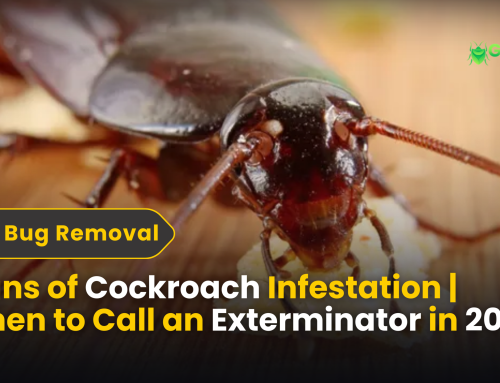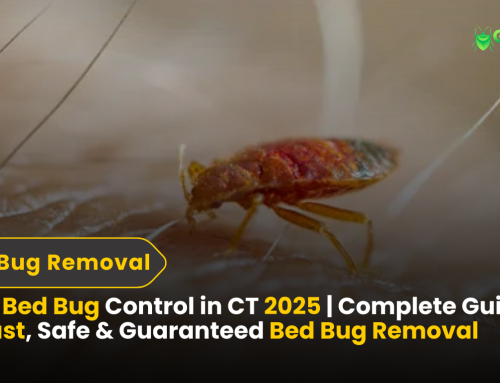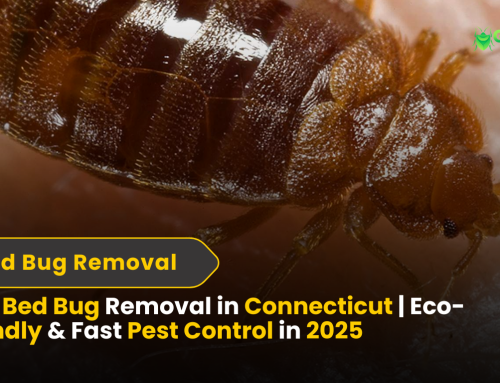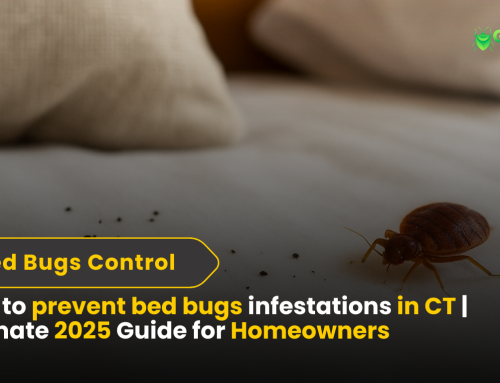How to Deter Hornets from Nesting | 2025 Effective Methods
Hornets are aggressive insects that can become a real problem when they decide to build nests near your home, garden, or workplace. While they play a role in controlling other pests, most people simply want to avoid their painful stings and the risks they pose to family, pets, and guests. If you’re wondering how to deter hornets from nesting, the good news is that there are proven ways to prevent them before they settle in. This guide will walk you through natural remedies, commercial deterrents, and professional solutions so you can keep your property safe in 2025.
Why Do Hornets Choose Certain Nesting Spots?
Hornets are selective about where they build their nests. They typically look for quiet, sheltered areas that offer both protection from predators and easy access to food and water. Common nesting spots include roof eaves, attic corners, hollow trees, sheds, and sometimes even under decks or porches.
They are especially attracted to environments where sugary foods, open garbage, and standing water are present. According to the U.S. Environmental Protection Agency (EPA), removing these attractants is one of the most effective steps in prevention because once hornets find a comfortable spot, they rarely relocate unless forced.
Don’t wait until hornets start scouting — take preventive action early in the season by inspecting your home’s exterior for gaps and cleaning up food scraps after outdoor activities.
How to Deter Hornets from Nesting Around Your Home
If you want to successfully keep hornets away, you’ll need to combine several preventive strategies rather than relying on a single method. Hornets are smart and adaptable, so it’s important to create an environment that feels unwelcoming to them.
- Seal entry points carefully – Check walls, vents, chimneys, and eaves for cracks or gaps. Even small openings can invite hornets to explore. Using caulk or mesh screens ensures they have no access to potential nesting spots.
- Remove attractants consistently – Hornets are drawn to leftover food, open garbage, and water sources. By keeping bins tightly sealed, wiping down outdoor tables, and emptying birdbaths, you make your home less appealing.
- Apply deterrent sprays safely – Use hornet-safe sprays designed for prevention, not just removal. Spraying potential nesting spots early in the season can stop hornets before they begin construction.
- Hang decoy nests strategically – Hornets are territorial and usually avoid nesting near another colony. Hanging a fake nest near eaves or sheds can trick them into moving elsewhere.
Checklist for Prevention
- Inspect and seal cracks and openings regularly
- Keep food waste and garbage tightly sealed
- Clean outdoor cooking and dining areas after use
- Apply safe deterrent sprays around likely nesting zones
- Monitor attics, sheds, and fences weekly for signs of activity
Following this layered approach greatly reduces the chances of hornets considering your home as their next construction site.
Natural Ways to Keep Hornets Away
For those who prefer eco-friendly solutions, nature offers plenty of effective deterrents. Essential oils like peppermint, citronella, and eucalyptus are among the most reliable scents that hornets dislike. Simply mixing these oils with water and spraying them around doors, windows, and eaves can discourage hornets from even approaching.
Plant-based barriers are also useful. Growing mint, wormwood, or citronella grass near your patio or garden not only adds greenery but also creates a natural hornet-repelling zone. These plants release aromas that hornets avoid, reducing their activity in your outdoor space.
Household remedies like vinegar-water sprays or mild soap solutions can also be applied where hornets scout. According to Wikipedia, peppermint oil in particular has been studied for its ability to repel wasps and hornets effectively. While these remedies may require more frequent reapplication, they are safe for kids, pets, and the environment.
Best Commercial Hornet Deterrents in 2025
When natural solutions are not enough, commercial deterrents offer stronger protection. New products in 2025 combine improved safety with better efficiency, making them a solid option for households dealing with recurring hornet problems.
|
Product Type |
Effectiveness (1–5) |
Best For |
|
Hornet Repellent Spray |
5 |
Outdoor walls, eaves, and sheds |
|
Electronic Ultrasonic Repeller |
4 |
Patios, garages, and indoor spaces |
|
Hornet Traps |
3 |
Gardens and open yards |
|
Decoy Nests |
3 |
Roofs, porches, and balconies |
In Florida, one homeowner reported reducing hornet activity by nearly 70% after combining peppermint oil sprays with an ultrasonic repeller. This shows that using multiple deterrents together is more effective than relying on just one solution.
When to Call Professional Pest Control Services
Sometimes, no matter how proactive you are, hornets may still establish a nest. This is when professional help becomes necessary How to Deter Hornets from Nesting. Large nests or ones hidden in hard-to-reach areas pose serious risks if you attempt to handle them yourself.
Signs you may need pest control include repeated hornet sightings near your home, large nests growing quickly, multiple stings in one season, or nests located near high-traffic areas like doors and patios. Licensed pest control experts use protective gear and specialized methods that eliminate hornets safely without risking your health.
Another benefit is that professional services often include preventive treatments, ensuring that hornets don’t return the following year. If you feel uncertain or unsafe, it’s always better to call a professional hornet removal service rather than take risks.
Are Hornets Dangerous to Humans and Pets?
Hornets are not just annoying; they can be dangerous. Unlike bees, hornets can sting multiple times without dying, which makes them especially threatening when nests are nearby. Their stings are painful, cause swelling, and in some cases, can trigger severe allergic reactions.
Children, pets, and individuals with allergies are particularly vulnerable. According to MedlinePlus (NIH), hornet stings can lead to redness, swelling, dizziness, and in rare cases, life-threatening anaphylaxis. If symptoms worsen after a sting, immediate medical attention is critical.
This danger is why preventing nests is so important. Keeping deter hornets from nesting away protects not just your home but also your loved ones.
Common Myths About Hornet Prevention
Over the years, many “home tricks” for deter hornets from nesting have circulated, but most of them simply don’t work.
- Hanging brown paper bags as fake nests may discourage a few hornets, but it’s largely ineffective.
- Burning incense or candles only works temporarily, and hornets return once the scent disappears.
- Sugar traps attract hornets instead of deterring them, making the problem worse.
Instead of relying on myths, focus on strategies backed by science and professional experience: sealing entry points, applying essential oils, and using quality deterrents.
FAQs on Hornet Nest Prevention
What smell keeps hornets away?
Hornets dislike strong scents like peppermint, citronella, and eucalyptus oils, which makes them the best natural deterrents.
Do fake hornet nests work?
Fake nests may deter some hornets, but they are most effective when paired with sprays and sealing entry points.
How often should I apply deterrents?
Natural sprays usually need to be reapplied weekly or after rain, while commercial sprays often last 2–3 weeks.
Can hornets return to the same spot every year?
Yes, hornets may return to old nesting areas. Applying deterrents early in spring reduces the chance of recurrence.
Conclusion: Keep Your Home Hornet-Free in 2025
Learning how to deter hornets from nesting is not just about convenience but about safety and peace of mind. By sealing entry points, removing food and water sources, applying natural deterrents, and considering modern commercial products, you can drastically reduce the risk of infestations.
If you already see hornet nests forming or want guaranteed protection, don’t wait until the problem grows. Contact our pest control experts today to keep your home and family safe all year round.










